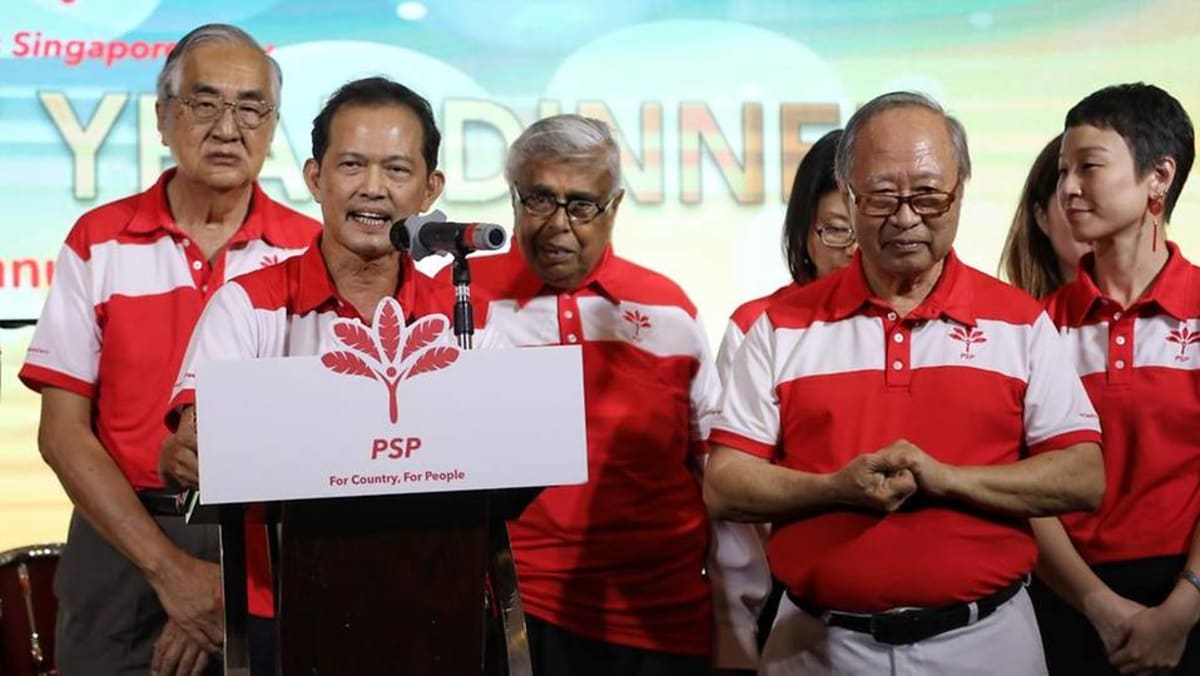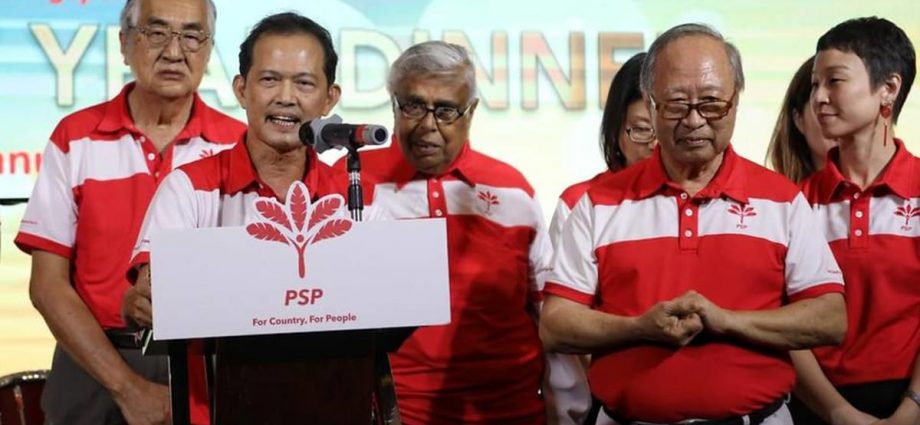
LEADING PSP INTO THE NEXT GENERAL ELECTION?
Mr Leong’s parliamentary style should be viewed separately from his party duties and responsibilities, said Assistant Professor Elvin Ong from the National University of Singapore’s (NUS) Department of Political Science.
“His appointment as secretary-general will be a test of his internal party leadership and organisational abilities, which is an entirely different skillset from parliamentary debates,” he added.
The PSP’s moves provide Mr Leong with a greater profile and line him up to lead the party into the next General Election “if there are no mishaps along the way”, said Dr Gillian Koh, deputy director for research and senior research fellow at NUS’ Institute of Policy Studies.
“In other words, this only works if he is viewed as a strong and credible opposition politician through his performance in parliament,” she told CNA.
“He’ll need to pick the right battles, do the homework to put forward sound arguments to not only question the front bench on its policies and legislation, but provide alternative policy positions for the public to judge their calibre.”
The People’s Action Party’s (PAP) team in West Coast – where Mr Leong and Ms Poa contested alongside Dr Tan in the previous General Election – comprises two ministers, Minister for National Development Desmond Lee and Minister for Transport S Iswaran, Dr Koh noted.
“Since cost of living and the social compact will continue to figure in public discourse over the next few months, as they say, everyone is going to have to up their game in the sense that the quality of debate, the articulation of what matters to the constituents will be judged,” she added.
Although the party is signalling its confidence in Mr Leong, he will have to act in ways that attract fresh members to the PSP leading up to the next General Election, said Dr Koh.
“We will see if the PSP would tend towards a good ground offensive – which means that it needs members to meet residents directly, door-to-door – which is what WP majors in. Or, if it is via a strategy of aerial bombardment, which focuses on policy debates and recommendations in parliament,” she added.
The resignation of Mr Yuen as the party’s chief also likely pushed it to elect Mr Leong to the position, since they needed to fill the role as soon as possible, said NTU’s Dr Tan.
It was “quite a surprise” when Mr Leong and Ms Poa relinquished their positions on the CEC in 2020 to concentrate on their parliamentary work, he added.
As the new secretary-general, Mr Leong is now the face of PSP, with Dr Tan Cheng Bock “receding more and more into the background as a party elder”, said SMU’s Assoc Prof Tan.
To some, Mr Leong’s election could be seen as the PSP falling short and not being able to sustain the promise and potential it had in 2020, when it outperformed more established parties at the General Election, he added.
“It could point to the party lacking suitable office-bearers such that they have to tap on their two NCMPs who will now have to juggle substantial party work with their parliamentary duties,” he said.
“The party is clearly thinking of the next General Election and sees the second half of the parliamentary term as a time to aggressively raise the party’s profile.”
The PSP recognises that it has to make a compelling case that there is room for another opposition party in parliament, said Assoc Prof Tan.
“To that end, the PSP might continue with Mr Leong’s combative posture while playing the defiant underdog speaking for the masses,” he added.

